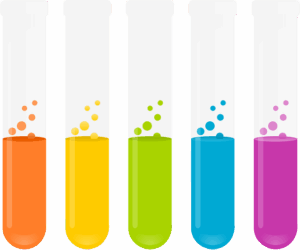Precision translation of Laboratory Reports and Scientific Data is crucial for global scientific collaboration. Skilled translators with expertise ensure accurate conveyance of complex information, preserving data integrity. Advanced technologies and quality control measures facilitate seamless sharing of critical findings worldwide, revolutionizing research through inclusive knowledge exchange.
Trusted translations of laboratory reports and scientific data documents are essential for global collaboration and accurate knowledge sharing. In today’s international research landscape, clear communication is paramount. This article explores the critical aspects of scientific translation, including precision in communication, navigating language barriers, ensuring data integrity, global collaboration, specialized terminology, and quality assurance. By delving into these key areas, we underscore the importance of expert translations for advancing scientific research and knowledge worldwide.
- Precision in Scientific Communication: The Key to Trusted Translations
- Navigating Language Barriers in Lab Reports
- Ensuring Data Integrity: Accurate Document Translation
- Global Collaboration: Breaking Down Language Walls in Science
- Specialized Terminology: Translators' Expertise for Clear Communication
- Quality Assurance: Validating Translated Scientific Documents
Precision in Scientific Communication: The Key to Trusted Translations
Precision is paramount in scientific communication, as it forms the foundation for trusted translations of laboratory reports and scientific data documents. When dealing with complex and often highly technical information, even minor discrepancies can have significant implications. Therefore, professionals must employ meticulous attention to detail during both the original research phase and when preparing documentation.
Accurate translations require a deep understanding of the source material’s context and terminology. This calls for experienced translators who are well-versed in scientific fields, capable of rendering technical jargon into equivalent terms in the target language while preserving the original meaning and intent. Such precision ensures that researchers worldwide can rely on the translated documents, fostering collaboration and knowledge exchange across linguistic and cultural barriers.
Navigating Language Barriers in Lab Reports
Navigating language barriers in laboratory reports and scientific data documents is a complex challenge for researchers working across borders. Accurate translations are crucial to ensure that findings are accessible, reproducible, and effectively shared within the global scientific community. Traditional methods often fall short due to nuances, specialized terminology, and context-specific meanings that can be lost in translation.
Advanced translation technologies, including machine learning models and human translators with scientific expertise, offer promising solutions. These tools not only speed up the process but also enhance accuracy by capturing complex concepts and technical terms accurately. By leveraging these advancements, researchers can overcome language barriers, fostering international collaboration and accelerating scientific progress.
Ensuring Data Integrity: Accurate Document Translation
Maintaining data integrity is paramount in the scientific community, especially when sharing findings globally. Accurate translations of laboratory reports and scientific data documents play a crucial role in preserving this integrity. When translating technical content, it’s not just words that need to be conveyed precisely; it’s the meaning behind them, ensuring results, methods, and conclusions remain unambiguous.
Professional translation services with expertise in science and technology are vital for this task. They employ translators who understand scientific terminology and can translate complex concepts accurately. Moreover, these services often incorporate quality control measures, such as peer review by subject-matter experts, to guarantee the translated documents’ accuracy and reliability, fostering a global environment where scientific knowledge is accessible and trustworthy.
Global Collaboration: Breaking Down Language Walls in Science
In today’s globalized scientific landscape, collaboration knows no borders. Researchers from around the world share knowledge, pool resources, and advance their fields through cross-border partnerships. However, language barriers have long posed a challenge to this seamless exchange of ideas and data. Trusted translations play a pivotal role in breaking down these walls, ensuring that laboratory reports and scientific data documents are accessible and understandable by all.
Accurate translation services enable researchers to collaborate effectively, share findings, and build upon each other’s work without linguistic constraints. This fosters a more inclusive and dynamic scientific community, where knowledge is not limited to specific regions or languages. By facilitating open communication, trusted translations empower scientists worldwide to contribute collectively to the advancement of their disciplines, ultimately accelerating scientific progress and innovation.
Specialized Terminology: Translators' Expertise for Clear Communication
In the realm of laboratory reports and scientific data, clear and precise communication is paramount. Specialized terminology often presents a unique challenge for translators, as scientific concepts can be intricate and highly specific. Professional translators who possess expertise in this field are adept at navigating these complexities, ensuring that technical jargon is accurately conveyed without losing clarity.
Their in-depth knowledge of scientific practices and terminologies allows them to bridge the gap between languages while maintaining the integrity of the original content. This expertise is crucial for effective communication, enabling researchers and scientists from diverse linguistic backgrounds to share their findings seamlessly.
Quality Assurance: Validating Translated Scientific Documents
Ensuring the accuracy and quality of translated laboratory reports and scientific data documents is paramount, especially in fields where precision is key. Quality Assurance (QA) processes play a vital role in validating these translations, acting as a crucible for upholding academic and research integrity. This involves meticulous verification of the translated text against the original document to ensure conceptual and linguistic accuracy.
Expert translators employ various QA strategies, such as back-translation, peer review, and translation memory, to maintain consistency and capture nuanced scientific terminology accurately. Back-translation, for instance, involves having a native speaker of the target language translate the document back into the source language, highlighting any discrepancies. Peer review by subject matter experts ensures that technical details are correct while linguistic experts refine the text’s flow and clarity. Translation memory tools also record and reuse previously translated terms, enhancing efficiency and consistency across documents.
In today’s global scientific community, effective communication transcends borders. By leveraging trusted translations of laboratory reports and scientific data documents, researchers can seamlessly collaborate, ensuring data integrity and accelerating progress. Precision in scientific communication, coupled with expertise in specialized terminology, is the cornerstone of this process. Through rigorous quality assurance protocols, we can break down language barriers, fostering a symphony of knowledge exchange that ultimately revolutionizes discovery.
